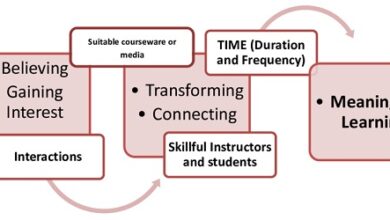Functionalism in linguistics/communicative competence
Linguistic functionalism
The linguistic macro current that is based on a functional interpretation of language; arose from the Prague School, and one of its representatives was A. Martinet, founder of the International Society for Functional Linguistics (SILF), which laid the foundations of linguistic functionalism. It manifests itself in a series of theories from the 80s of the 20th century and has not stopped growing. It maintains a non-autonomous or functional position contrary to the so-called structuralist autonomous linguistics, characteristic of formalism. In this article we will describe the functionalism in linguistics
Essence
In linguistics, functionalism refers to the function of the elements that make up each language, as a communicational element, which is the main mission of the language. The study of language from a functional point of view requires observation and respect for each of the study facts. The purpose is to instigate the function of language in all its aspects and establish theories that help set the standards of knowledge within this discipline.
Functional linguistics focuses on finding within language everything that is needed to understand and explain how it is used in different contexts, and the aspects that influence, influence, and interact with it; as well as the fundamental components of meaning in language, they manifest basic functions to represent the world and interact and communicate with others in all contexts.
Functional linguistics explains the form of phrases and texts or speeches, based on principles such as the least effort, the economy of expressive means, the double articulation of linguistic units, and iconicity as a reflection of what is symbolized in verbal representation. or like the painting that the language of reality can make. It is important for a language to be interpreted as a system of meanings accompanied by forms that express the meanings of words.
Functional analysis
Functionalism criticizes Chomsky‘s innateness and the computability of the rules that enumerate grammatical sentences. For functional analysis, the importance of the interpretation of texts is pointed out, so it is designed to account for how language is used in its context and in the interpretation of the linguistic system. The fundamental components of meaning in language manifest basic functions: representing the world by interacting with others. Interpretation of linguistic elements is also highlighted for functional analysis, since each element is explained by its function in the whole linguistic system used in the text under analysis, both spoken and written.
Communicative competence
For communicative competence, functionalism exposes three aspects:
The importance of linguistic knowledge of verbal and non-verbal codes, and their range of variants to use. The instruments of interaction to achieve the objectives through communication, which must take into account the rules for the appropriate use of expressions and know how to choose in the code the discursive elements and possible communication strategies. Cultural knowledge about the social structure, values, beliefs, and conceptual domain of knowledge.
Relationship between the features of the situational context with the functions of each context
Functionalism considers the relationship between the features of the situational context with the functions corresponding to each context according to the following aspects:
In the field of discourse, what is happening? Ideative function: language is the representation of the real or imagined world and the logical representation of the units that are the ideative meaning.
The tenor of the speech, who participates, and what relationship is established between them? Interpersonal function: language as action and interaction between speaker and listener, which is interpersonal meaning.
Mode of speech, how do you use language in that situation? Textual function: language as a message, the texture that differentiates a text from an arbitrary series of words or sentences that is considered textual meaning.
Trends
Functionalism as a linguistic macro current generates functionalist tendencies such as:
- Functional-systemic linguistics (LFS), by Michael Halliday.
- The grammar of paper and reference (PRG), by Van Valín y la Polla.
- Cognitive linguistics, by George Lakoff.
- The grammar of constructions: theory of grammaticalization and cognitive grammar.
- North American functionalism: Givón, Hopper, Thompson.

